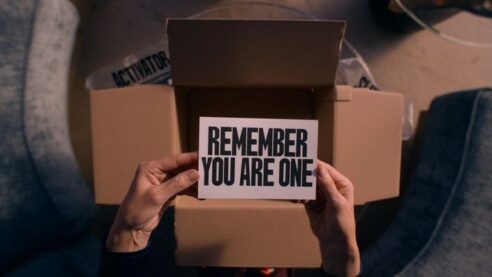
You Can’t Escape from Yourself: The Substance (2024)
“Looks like everything sure is in the right place this time.”
I don’t enjoy writing reviews of movies that I didn’t like, and I try to avoid doing it, especially when a lot of other people seem to really be on board with what the picture has to offer. Even when I don’t like a movie, I can usually find a way to write about it that I find more interesting, that I hope does a service to the film’s context, to the people who might enjoy it more than I did, to the legitimate but different readings of the material that I have seen other critics make.
Often, when I have a very different (and undeniably worse) experience from what seems to be the common consensus on a film, I assume that I approached it “wrong” somehow. That I expected it to be something that was never on its agenda in the first place. That I missed some vital piece that made everything come together. That I simply wasn’t in the right headspace. Not in this case, though. This time, I’m very sure it’s the children who are wrong.
Which is all to say that writing this review has been very difficult for me. Not only because I don’t want to be writing it, but because the innumerable flaws which make up The Substance are as layered as the film itself wishes it was.
I can’t even assume that this is a situation where the hype was its undoing. While I had heard an exuberant amount of buzz about The Substance going in, there is no world where my expectations could possibly have been low enough to sit through this incoherent, toothless disaster and walk out of the theater feeling anything but disgust – just not at any of the things the movie wanted me to.
I have to write this review, though, which means I have to begin somewhere. If you somehow don’t already know, The Substance is, at least on the tin, a movie about the torturous unfairness of feminine beauty standards. A movie about celebrity. About aging. About the male gaze. About what it means to be a woman – especially an “attractive” woman – in a patriarchal world and the unsparing limelight of fame. Unfortunately, it’s also a movie with absolutely nothing substantive to say about any of those subjects. It just says them so loudly and stridently that it fools itself into thinking differently.

To the extent that this bloated nonsense ultimately has a thesis, it is simply and unambiguously this: That hot people are hot, old people are disgusting, and the worst – and indeed only – truly bad thing that can ever happen to someone is that they might not be hot.
I’m very sure that the movie genuinely set out to critique these positions, but it fumbles the ball so spectacularly that it ends up reifying them wholesale, instead, becoming just another in a long line of scare pictures whose central premise can be reduced down to “wouldn’t it be horrifying if people got old?”
It’s a film that wants badly to be satirical; to be subversive. It wants so desperately to be the anti-Barbie, an acidic take-down of celebrity culture, patriarchal norms, and beauty standards. But subversion requires more than merely uncritically reproducing a thing verbatim while putting a lampshade on it. At that point, you’re just guilty of actually doing the thing that you’re supposedly satirizing.
Others have written more eloquently and eruditely than I can muster about how the film utterly fails not only its central metaphor, but even its central conceit and, ultimately, its audience. I don’t have it in me to say much more about any of that, save that one of my pet peeves in modern horror films is when the central premise works only as metaphor, not as actual text. Initially, The Substance feels like a perfect example of this, but the more you think about it, the more you realize it doesn’t work even as metaphor, either – that the film’s core concept, as presented, makes no sense either as signifier or as signified.
There are certainly elements to like in the film’s first third or so. Demi Moore turns in an absolutely committed performance that deserves better material than she is ever given, and there are some impressive effects that are at their best when they are at their most restrained. By the time the body horror finally explodes into the much-hyped Screaming Mad George style monster stuff in the film’s interminable last act, however, they have lost any punch they might ever have had.
As the movie careens into its inevitable conclusion, it loses all of its formal control and collapses into an incoherent pile of tropes that it has no idea what to do with beyond hurl them all at the screen. That this echoes the dissolution of the film’s protagonist could be made to work, somehow, somewhere other than here.

Instead, we get a post-Troma bundle of meaningless gobbledygook that is a big part of why the film is getting talked about, but which doesn’t seem like anything but noise to anyone who has ever seen a gonzo flick before. If the moment near the end when the 2001 music swells on the soundtrack isn’t the most asinine thing to happen in theaters all year, then we are all in terrible trouble.
The easy dodge on something like this is to say that it “isn’t for me.” After all, lots of other people seem to love it, to take from it things that I believe simply are not there. And I’m genuinely happy for those people. Good for them!
And I am, at least on paper, not this film’s target audience. Assigned male at birth, I have certainly lived my life enjoying the various benefits of straight white male privilege, whether I actually am most of those things or not. And I certainly don’t begrudge those who do not enjoy those same benefits any empowerment they can find, wherever they can find it.
It is never my goal to take away from anyone any small enjoyment that they manage to extract from this benighted world. Instead, I will simply say this: You deserve better than what The Substance has to offer. You deserve a satire that is actually subversive, one with teeth and fists and blood in its veins and, above all, something to say. Even for those people who are embracing The Substance simply as bonkers nonsense – you deserve better bonkers nonsense than this.
———
Orrin Grey is a writer, editor, game designer, and amateur film scholar who loves to write about monsters, movies, and monster movies. He’s the author of several spooky books, including How to See Ghosts & Other Figments. You can find him online at orringrey.com.





